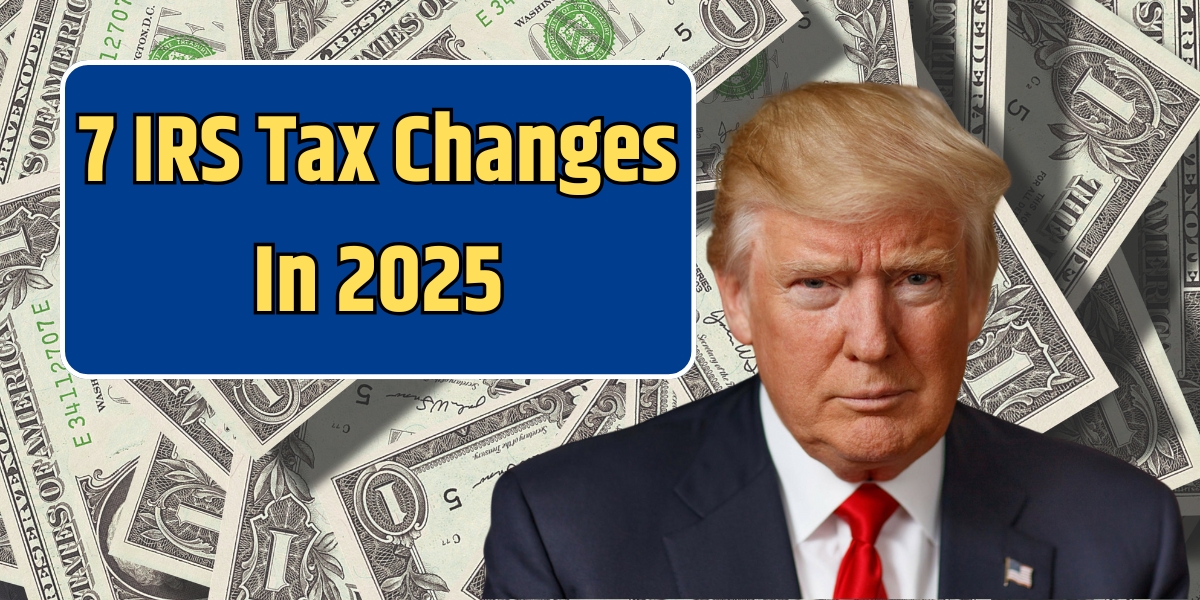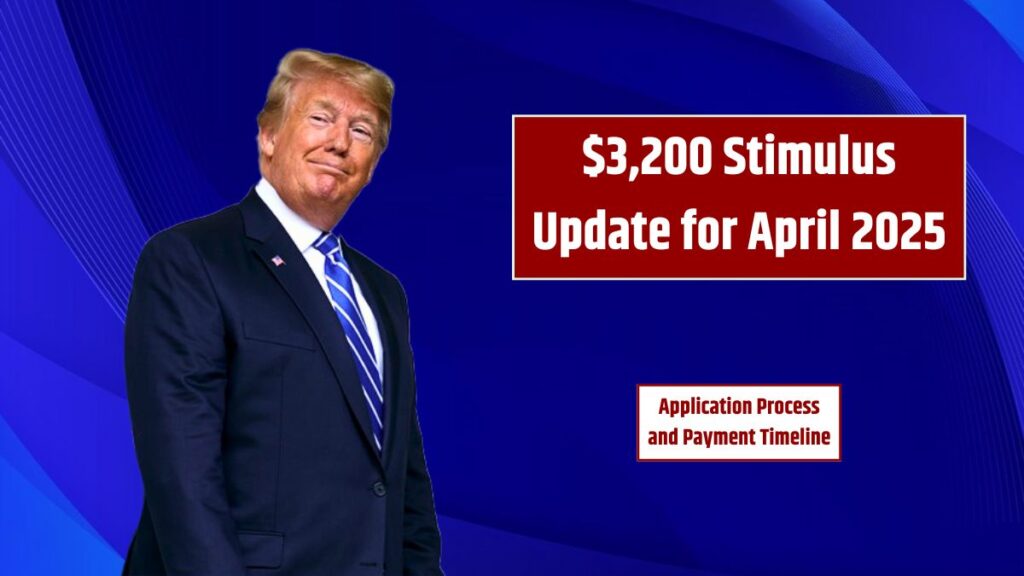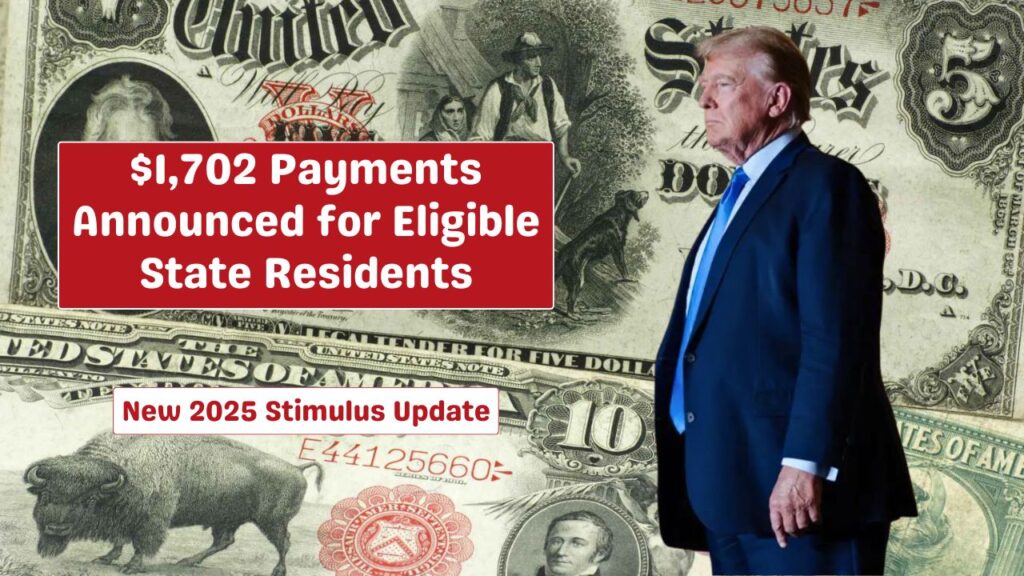The IRS Tax Changes in 2025 aim to provide much-needed financial relief to American taxpayers while addressing inflation, supporting families, and promoting eco-friendly projects. These changes will impact individuals, families, and small business owners, offering new opportunities for savings, tax incentives, and easier filing. As these updates roll out, it’s essential for eligible citizens to understand their impact and prepare accordingly.
7 IRS Tax Changes in 2025
The Internal Revenue Service (IRS) has introduced seven key changes to federal tax policies effective January 1, 2025. These updates aim to provide relief to low-income households, simplify tax filing, and incentivize sustainable initiatives. Below is an overview of these changes and their implications.
| Details | Information |
|---|---|
| Authority | Internal Revenue Service (IRS) |
| Program Name | IRS Tax Changes 2025 |
| Start Date | January 1, 2025 |
| Category | Government Aid |
| Official Website | irs.gov |
1. Increased Standard Deduction
To adjust for inflation, the standard deduction will increase in 2025, reducing taxable income for most taxpayers.
- For individual filers, the deduction will rise to approximately $13,000–$15,000.
- For married couples filing jointly, the deduction will increase to around $28,179.
Impact: Taxpayers will experience reduced taxable income, simplifying the filing process for those without itemized deductions. This change particularly benefits middle-class families and individuals facing financial challenges.
2. Adjustments to Tax Brackets for Inflation
In response to rising inflation, the IRS will adjust income thresholds for each tax bracket.
- For example, the 22% tax bracket threshold could increase from $95,000 to $97,000.
Impact: These changes will help prevent “bracket creep,” where inflation pushes taxpayers into higher tax brackets despite stagnant real income. Middle-class earners will benefit most, maintaining lower tax rates and avoiding overpayments.
3. Increased Retirement Account Contribution Limits
To encourage retirement savings, contribution limits for 401(k) plans and Individual Retirement Accounts (IRAs) will increase:
- The 401(k) contribution limit will rise from $23,000 to $24,500, with higher limits for seniors.
- IRA contribution limits will also increase slightly.
Impact: These updates will allow taxpayers to save more for retirement while enjoying tax benefits through deductions or deferred taxes.
4. Modified Child Tax Credit
The Child Tax Credit (CTC) will be reformulated to offer greater support to families:
- The credit amount, currently $2,000 per child, may increase.
- The eligible age for children could be extended to 17 years or older.
Impact: Families will receive increased financial assistance to manage rising costs in childcare, education, and household expenses. Parents should review updated eligibility requirements and file accurately to maximize their benefits.
5. Tax Incentives for Eco-Friendly Projects
The IRS will introduce tax incentives for investments in sustainability and energy-efficient technologies:
- Eligible projects include installing solar panels, purchasing electric vehicles, and improving home energy efficiency.
- Example: Homeowners may receive up to 50% of project costs as a tax credit.
Impact: Homeowners and businesses adopting renewable technologies will benefit from tax credits, reducing costs while promoting sustainability. Taxpayers must keep accurate records of expenses to claim these incentives.
6. Updates to Small Business Tax Regulations
Small businesses will face new tax regulations covering digital earnings, employee benefits, and equipment purchases:
- The changes aim to improve transparency and simplify tax reporting requirements.
- Small businesses can maximize deductions while ensuring compliance.
Impact: Business owners must stay informed about these changes to avoid penalties and optimize tax efficiency. Consulting professional tax advisors will help navigate the new rules effectively.
7. Easier and More Convenient Tax Filing
In 2025, the IRS will introduce initiatives to simplify the tax filing process:
- Single-income households and fixed pension earners will experience streamlined filing.
- IRS-authorized tools and software will reduce errors and help taxpayers identify eligibility for credits and deductions.
Impact: Millions of taxpayers will save time, reduce filing errors, and ensure a smoother tax experience. This change will be especially beneficial for low-income and elderly taxpayers.
Key IRS Tax Changes Summary
| Change | Impact |
|---|---|
| Increased Standard Deduction | Reduces taxable income, simplifies filing for most taxpayers. |
| Inflation-Adjusted Tax Brackets | Prevents bracket creep and reduces tax burden on middle-class earners. |
| Higher Retirement Contribution Limits | Encourages more savings with better tax benefits. |
| Reformulated Child Tax Credit | Provides greater support for families with eligible dependents. |
| Eco-Friendly Tax Incentives | Rewards investments in renewable energy and sustainability projects. |
| Updated Small Business Regulations | Simplifies compliance and enhances deductions for small businesses. |
| Easier Tax Filing Process | Saves time, reduces errors, and improves accessibility for taxpayers. |
FAQs
When will the IRS tax changes take effect?
The changes will be implemented starting January 1, 2025.
How can citizens learn about these changes?
You can visit the official IRS website (irs.gov) for detailed updates or consult a tax professional.
Who benefits from the increased standard deduction?
Middle-class taxpayers and individuals with minimal itemized deductions benefit the most.
What are the new Child Tax Credit updates?
The Child Tax Credit may increase beyond $2,000 per child, with eligibility extending to children 17 years or older.
What eco-friendly investments qualify for tax incentives?
Eligible projects include solar panel installations, purchasing electric vehicles, and improving home energy efficiency.

















